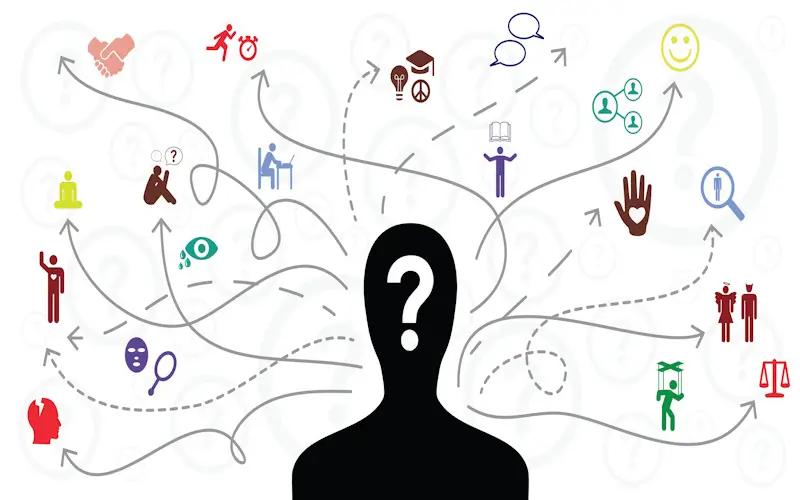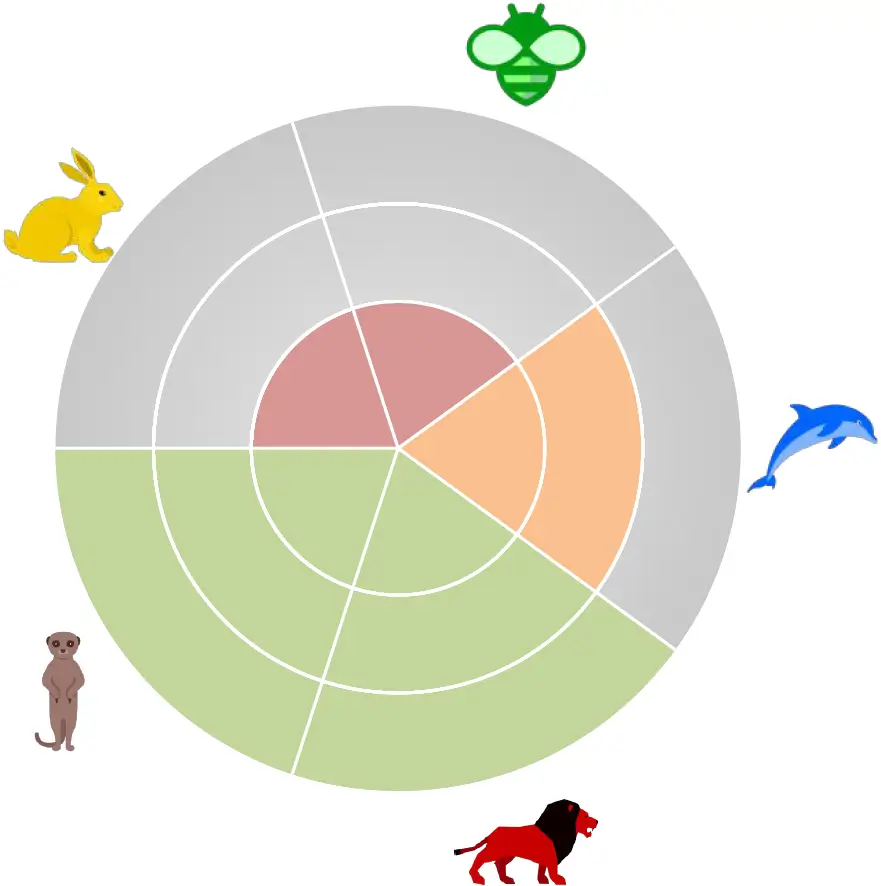A Guide To Managing Different Personality Factors
The first thing to understand about personality assessments is that if they put you in a singular box, they haven’t properly and holistically assessed you or the way that you work. Type-based approaches are simplistic, reductive, and tend to stereotype people.

Therefore, when it comes to managing different personality factors, it is important to remember that your employees will demonstrate different traits, or aspects of personality, which can be affected by major life events. We can help you with this.
This blog aims to break down the different personality factors, how employees may manage conflict, and how to manage different personalities at once, within a team. This information is based on The Quest Profiler®, one of the fastest-growing personality questionnaires in the UK, used for both selection and development by some of Britain's biggest companies.
What Are The Different Personality Factors?
“The big five” personality factors can be summarised as the following:

Conscientiousness
This personality factor means someone is dependable, organised and has a lot of self-discipline. Sometimes they don't want to stop until the job is done. A busy bee symbolises this aspect of personality. Obtaining the opposite position on this scale is often linked to people who are more spontaneous and flexible, but perhaps a little less likely to conform.

Calmness
This is often called – by psychologists more steeped in clinical terminology than we are – ‘emotional stability’ or ‘emotional steadiness’ (in contrast to anxiety). People who are high on this scale are strong at handling what life throws at them, with less feelings of anger and stress. If you are at the opposite end of this scale it may mean that you are more excitable and may have a more emotional personality.

Extraversion
This term is pretty universal (some call it ‘surgency’, but that sounds a little old-fashioned to us). If you come out strongly on this scale, you are more likely to be talkative and sociable. Being very high on this scale is also linked to being domineering and someone who likes attention. If you are at the other end of this scale, you are far more likely to be reserved and shy, preferring not to be the centre of attention.

Openness to Experience
People who are high on this scale love novelty and trying new things. It may also suggest that you get bored very easily and are more likely to lack focus, especially when doing mundane tasks. The opposite end of the spectrum to this is ‘conservatism’ – a resistance to, or even a fear of change and new ideas. If you are lower on the scale, you are more likely to avoid doing brand new things, preferring the tried and tested.

Warmth
This is perhaps the most debated term. Among the terms used by others are ‘agreeableness’ (at least one syllable too many to roll off the tongue nicely!), ‘benevolence’, ‘likability’ or even ‘love’. All carry rather judgemental overtones, but warmth, we feel, says it best. If you are high on this scale it would mean you are more likely to have a cooperative and compassionate personality. However, more cynical people might see you as more naïve than most. Any soft, fluffy animal would have symbolised this well and we've picked the bunny rabbit, making it a warm yellow colour.

A screenshot of the overall summary from the Independent Development report - one of the outputs available from The Quest Profiler®.
> Find out which personality factors you haveRemember that this is not an 'either/or' situation: you don't have to be a single animal; we're not putting you 'in a box'. It is easily possible to have the characteristics of several animals. Your report will show the tendencies of each animal that you have, as well as identifying which animal (or animals) you resonate the most with. For example, it could look like this:
How To Manage Different Personalities In Conflict
Imagine that you have a difficult project approaching with a volatile client, tight deadlines and high pressure. You need to decide who you are assigning to the project, but to do so, you have to decide who works well with this type of conflict, and how they will work with the other person on their team under this level of pressure.
In this circumstance, imagine that your employees have already done a personality questionnaire that measures their attitude towards conflict. You can use this information to decide who is best suited to this project, and who their partner should be.
The scales that they measure on are:
Competition
You like to win and, by implication, others have to lose. It's worth noting that you are likely to get into conflict with other competitive individuals who may not share your ideas, which might feel frustrating but less so if you anticipate it happening.
Avoidance
You don't like conflict and feel that one approach to avoiding it is not to get into these situations in the first place. This is likely to mean avoiding or keeping away from roles where there is a lot of confrontation and dissent such as those where relationships between managers and employees are excessively fraught.
Conciliation
When something important is at stake or when you feel strongly about something, you are good at being patient or prepared to compromise. You are arbitrary, so you are likely to be chosen as a peacemaker in situations of high conflict. Everybody leaving at least reasonably happy is a good outcome for you.
Compliance
You are the kind of person who is happy to back down and let others have their way. A working environment in which you have to defer to others, perhaps one which is based on a very clear hierarchy, appeals to you. Being told what to do is sometimes the preferable option.
Co-operation
Having this conflict style is a powerful approach to conflict resolution built on cooperation, open communication, and finding win-win outcomes. By having this conflict style, you prioritise reserving relationships, and building trust.
How To Manage Different Personalities At Once
When determining the best ways to manage different personalities at once, it is crucial to manage interactions between different personalities, particularly if your workspace relies on teamwork in some way.
Our Quest Profiler® individual assessment identifies how each person works within a team. A successful team should have a range of each of the different working styles. Once everyone has established which styles they relate to and which they don’t, they can begin to look at their strengths and what they bring to the team, as well as areas for improvement.
It is important to note that everyone will relate to some traits more than others, but this is still not a ‘labelling’ exercise, as these are scales, not boxes.
The Expert
You very much enjoy roles where you have the in-depth knowledge and expertise in a team; your contributions are usually reliable and well founded.
The Catalyst
You are likely to have a forceful and direct approach which will suit jobs where you are required to tackle difficult issues. You usually ensure that the team makes progress and achieves results.
The Facilitator
You are likely to enjoy roles requiring you to act as the 'glue' that holds the team together.
The Critic
You would not be happy to let the team run away with their own ideas if they want to. Casting a critical eye over projects is an enjoyable prospect to you.
The Doer
You enjoy roles where you are expected to help the group by putting all their plans into practice.
The Networker
You like to keep in touch with a wide variety of people who may be useful to the team. Networking is a role you excel in.
The Creative
You are likely to enjoy roles where you have ample scope to generate ideas for the team to consider. You may be seen as radical and original, and are often thought provoking.
The Perfectionist
You dislike the idea of moving forward quickly before all the facts have been verified. You do not enjoy risks and are best to be depended upon to make sure that all the finer detail has been checked.
The Coach
In committees or group situations, you are likely to take on the role of a leader who asks others their views. You are confident in outlining what needs to be done or coordinating activity and effort.
Find The Best Personality Assessments For Your Workplace Today
We can feed back the results from our psychometrics and if your staff need further development as a result, we can provide this too. Of course, this approach is particularly relevant where, for reasons of tact or politics, it is best to have an outsider, unconnected with your team or perhaps your whole organisation, providing this service.
We will approach each brief with a commendable neutrality. A Chartered Psychologist will have the experience and credibility to meet your objectives.